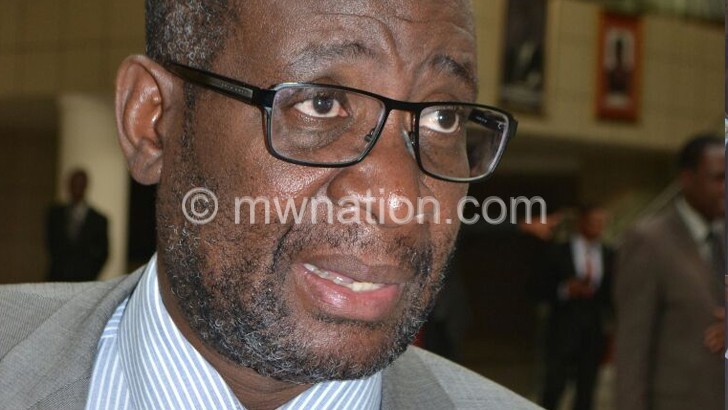ADMARC says can’t breathe
Financially struggling Agricultural Development and Marketing Corporation (Admarc) says its potential to perform is hampered by commercial bank loans that have left the State produce trader “working for banks in a way”.
Newly appointed Admarc general manager Rhino Chiphiko stated the position at Parliament Building in Lilongwe yesterday during a meeting with the Parliamentary Committee of Agriculture and Food Security whose chairperson Sameer Suleman alleged there were cabals cashing in on Admarc financial woes.
But an agriculture expert has said the main challenges stifling smooth operations of Admarc are institutional, arguing that the roles government plays negatively affect the corporation’s operations
Chiphiko said all the maize Admarc has in stock belongs to commercial banks as it is collateral. He said currently there are about 92 000 metric tonnes and Admarc is expected to stock 300 000 metric tonnes.

maize is collateral
He said: “We, as Admarc, are directed to go and acquire expensive loans. And all the loans that we acquire are on collateral arrangement whereby all the maize that Admarc buys belongs to banks.
“So, Admarc is working for the banks in a way because when you talk of issues of transportation, fumigation and storage, Admarc does that and in addition, Admarc is charged interest at the rate of about 17 percent [per annum].
“If you look at it as a package, it is true that there is a third force operating and probably the cartel exists between the banks, the ministries and some individuals.”
Chiphiko also said he suspected that there are ‘cartels’ in fertiliser, cooking oil and maize that manipulate prices to realise abnormal benefits.
He asked government to empower Admarc to handle various businesses as it used to do before.
Chiphiko stressed that there is need to implement a turnaround strategy to enable Admarc venture into milling, cooking oil production, value adding for cotton, production of feed for livestock and other investments. He said the organisation needs about K410 billion ($500 million) for that.
Ironically, in February this year Admarc board chairperson Alexander Kusamba Dzonzi said the institution had secured $548 million (about K430 billion) to revamp its operations. However, the Admarc board did not disclose the source of the said funding.
Responding to Admarc concerns, the committee said it will ask government to recapitalise the institution and stop forcing it to borrow from commercial banks.
Suleman said he suspected that there is a syndicate of government officials, banks and other stakeholders who push Admarc to borrow from local banks for its operations to personally benefit from such deals.
He said: “We are going to do everything possible for a Malawian farmer. We know that these ‘cartels’ are not happy. Even if it means losing our lives, we are ready to do that.
“What will bring down these ‘cartels’ is the Fertiliser Bill we are talking about and they are sitting on that Bill. We are ready to face any consequences that will come with this fight. We are ready for it.”
Suleman said the committee will engage President Lazarus Chakwera to inform him about the ‘cartels’ and also recommend the removal of some Cabinet ministers and other government officials for allegedly cashing in on Admarc problems.
He also called on Admarc to explore external financing that is cheaper.
But agriculture policy analyst Tamani Nkhono-Mvula yesterday said recapitalisation is just one of the answers to promote Admarc’s efficiency.
He said government interference in the management of Admarc is one contributing factors to the woes, calling for the need to create a conducive environment for the institution.
“The Admarc Act gives powers to the minister to make decisions and such powers are abused,” said Nkhono-Mvula.
He said there is a need to reduce government shareholding of Admarc.
“You can give them all the money in the world, but if management decisions are influenced by the government, putting resources in Admarc won’t achieve anything,” said Nkhono-Mvula.
Ministry of Agriculture Principal Secretary Erica Maganga said the issue of recapitalisation is under discussion, but said the Ministry of Finance was better-placed to comment on the matter.
On fertiliser prices, she said the government is engaging Smallholder Farmers Fertiliser Revolving Fund of Malawi and other stakeholders to check prices.
“The ministry is looking at means of maintaining the number of beneficiaries at 3.7 million. If the prices of fertilisers were the same as last year, it would not have had a problem maintaining the beneficiaries,” said Maganga. Since the liberalisation of the economy in the mid-1990s, Admarc has been struggling to operate and has been surviving on bailouts from Ministry of Finance for survival.





